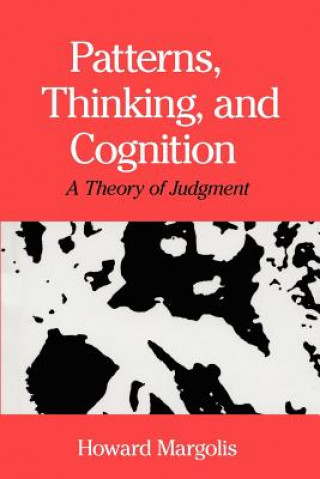
Kod: 04547228
Patterns, Thinking, and Cognition - A Theory of Judgment
Autor Howard Margolis
For decades, both policymakers and analysts have been frustrated by sharp and stubborn conflicts between expert and lay perceptions on issues of environmental risk. For example, most experts - even those opposed to nuclear power o ... więcej
- Język:
 Angielski
Angielski - Oprawa: Miękka
- Liczba stron: 340
Wydawca: The University of Chicago Press, 1990
- Więcej informacji o książce

Zobacz książki o podobnej tematyce
-

Complete Swedish Beginner to Intermediate Course
165.82 zł -4 % -

Six of Crows: Collector's Edition
73.68 zł -32 % -

Infinite Jest
61.28 zł -15 % -

Kim Jiyoung, Born 1982
43.44 zł -15 % -

Ready Player One
37.79 zł -26 % -

The Art Therapy Sourcebook
88.80 zł -23 % -

Life 3.0
44.14 zł -26 % -

The City of Brass
48.98 zł -14 % -

Will I Ever be Good Enough?
75.60 zł -13 % -

Halo Encyclopedia
205.84 zł -4 % -
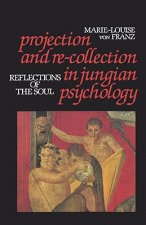
Projection and Re-collection in Jungian Psychology
133.86 zł -4 % -

Mindf*ck
47.07 zł -14 % -
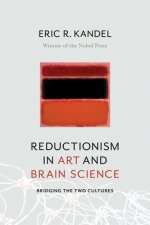
Reductionism in Art and Brain Science
96.36 zł -6 % -

Natural History Book
158.86 zł -15 % -
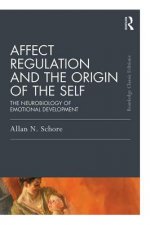
Affect Regulation and the Origin of the Self
590.22 zł -

Very First Questions and Answers What is the Moon?
38.30 zł -23 % -

Magos
47.37 zł -23 % -

What the Face Reveals
544.75 zł -

Geopolitical Alpha
122.47 zł -10 % -

Bomba!
62.19 zł -11 % -

Workflow Automation with Microsoft Power Automate - Second Edition
249.08 zł
Bon podarunkowy: Radość gwarantowana
- Podaruj bon o dowolnej wartości, a my się zajmiemy resztą.
- Bon podarunkowy dotyczy całej naszej oferty.
- Możesz wydrukować elektroniczny bon z e-maila a następnie przekazać go obdarowanemu.
- Ważność bonu wynosi 12 miesięcy od daty wystawienia.
Więcej informacji o Patterns, Thinking, and Cognition - A Theory of Judgment
Za ten zakup dostaniesz 122 punkty
 Opis
Opis
For decades, both policymakers and analysts have been frustrated by sharp and stubborn conflicts between expert and lay perceptions on issues of environmental risk. For example, most experts - even those opposed to nuclear power on other grounds - would see precautions like those now in place as adequate to protect against risks from nuclear waste. But the public finds that very hard to believe. Similar sharp conflicts of expert/lay intuition are evident on a wide range of risk issues, from the safety of bendictin as a treatment for morning sickness to the safety of irradiation of food to destroy microorganisms. In Dealing with Risk, Howard Margolis explores the expert/lay rift surrounding such contentious issues and provides a provocative new account. The usual explanation of expert/lay conflicts is that experts are focused only on a narrow notion of risk - such as potential fatalities - but lay intuition is concerned about a wide range of further concerns, such as fairness and voluntariness of exposure. Margolis argues that this "rival rationalities" view in a fundamental way misses the point of these controversies, since the additional dimensions of lay concern often are more plausibly interpreted as reflections of lay concern than as causes. Margolis argues that risk assessment typically involves weighing a broad range of often complicated trade-offs between costs and benefits. As laypersons, however, we are by definition forced to make judgments on complex matters beyond the scope of our normal experience. Especially in cases involving potential danger, we frequently discount nuance and respond more viscerally. Cognitively we fall back on default responses, all-purpose intuitionssuch as "better safe than sorry" or "nothing ventured, nothing gained." Such intuitions don't admit of careful balancing of pros and cons, and lay opinion consequently becomes polarized and at odds with the expert view.
 Szczegóły książki
Szczegóły książki
Kategoria Książki po angielsku Society & social sciences Psychology Psychological theory & schools of thought
210.27 zł
- Pełny tytuł: Patterns, Thinking, and Cognition - A Theory of Judgment
- Autor: Howard Margolis
- Język:
 Angielski
Angielski - Oprawa: Miękka
- Liczba stron: 340
- EAN: 9780226505282
- ISBN: 0226505286
- ID: 04547228
- Wydawca: The University of Chicago Press
- Waga: 556 g
- Wymiary: 231 × 158 × 22 mm
- Data wydania: 03. August 1990
Ulubione w innej kategorii
-

The Empathy Game
104.22 zł -7 % -

Red Book
1162.50 zł -6 % -

A General Introduction to Psychoanalysis
22.37 zł -29 % -

Inner Gold
103.62 zł -

Ego and the Id
16.12 zł -19 % -

Man's Search for Meaning, Gift Edition
101.20 zł -12 % -

Secret World of Drawings
88.80 zł -23 % -
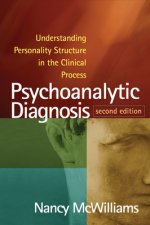
Psychoanalytic Diagnosis
237.79 zł -

Situation Is Hopeless But Not Serious
69.04 zł -6 % -
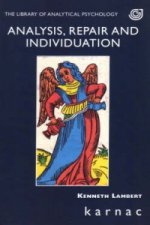
Analysis, Repair and Individuation
294.95 zł -
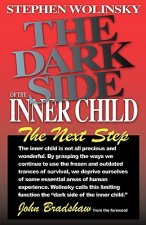
Dark Side of the Inner Child
118.34 zł -1 % -
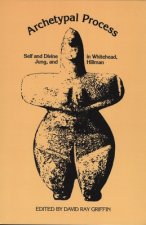
Archetypal Process
170.05 zł -
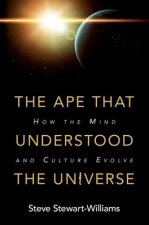
Ape that Understood the Universe
129.83 zł -5 % -
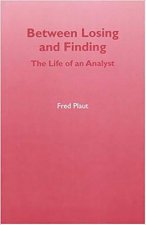
Between Losing and Finding
132.75 zł -

Four Archetypes
98.58 zł -4 % -

Threshold Experiences
166.62 zł -
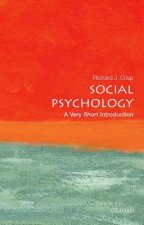
Social Psychology: A Very Short Introduction
57.55 zł -5 % -

Behave
54.12 zł -15 % -
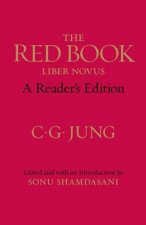
The Red Book – A Reader`s Edition
182.75 zł -7 % -

Emotional Intelligence
47.07 zł -7 % -
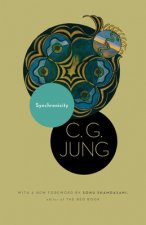
Synchronicity – An Acausal Connecting Principle
56.54 zł -

The Sublime Object of Ideology
74.39 zł -9 % -

Memories, Dreams, Reflections
62.19 zł -3 % -
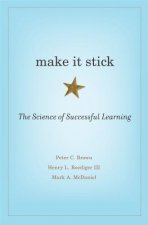
Make It Stick
164.21 zł -

Civilization and Its Discontents
42.93 zł -23 % -

Choice Factory
70.45 zł -23 % -
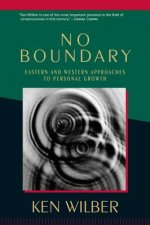
No Boundary
69.75 zł -10 % -

Problem of the Puer Aeternus
103.42 zł -

Answer to Job
45.55 zł -4 % -

Carl Jung: Wounded Healer of the Soul
116.42 zł -23 % -

Psychoanalyst Meets Marina Abramovic
78.52 zł -4 % -

The Interpretation of Dreams
22.37 zł -29 % -

Dreams
95.15 zł -4 % -

Ego and Archetype
111.78 zł -23 % -

Great Mother
123.88 zł -6 % -

How To Read Lacan
52.01 zł -23 % -

Integral Psychology
103.62 zł -10 % -

Archetypes and the Collective Unconscious
246.16 zł -

Freud and Beyond
102.51 zł -

Home is Where We Start from
61.28 zł -23 % -

Jung's Studies in Astrology
223.28 zł -

Dreams
93.94 zł -1 % -

Beyond the Pleasure Principle
61.28 zł -23 % -

Red Book of C.G. Jung
194.85 zł -

Quantum Mind
139 zł -

Ecrits
145.86 zł -5 % -
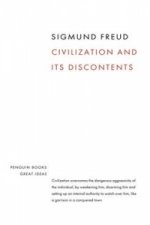
Civilization and its Discontents
35.37 zł -3 % -
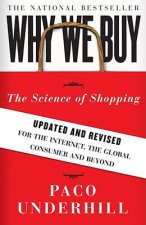
Why We Buy
81.24 zł -10 % -
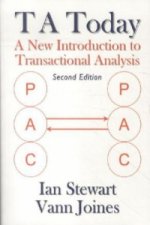
T A Today
92.93 zł -4 %
zadowolonych klientów
Od roku 2008 obsłużyliśmy wielu miłośników książek, ale dla nas każdy był tym wyjątkowym.
Copyright! ©2008-24 libristo.pl Wszelkie prawa zastrzeżonePrywatnieCookies



 21 milionów książek
21 milionów książek Dostawa 10.99 zł
Dostawa 10.99 zł (32) 444 93 66 (8-15.30h)
(32) 444 93 66 (8-15.30h)